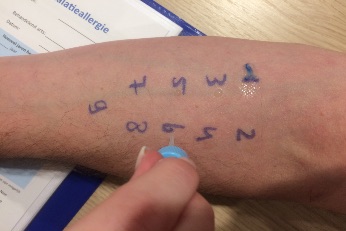Allergy Test

About
The symptoms of an allergic reaction may be warmth, flushes, itches or swelling of mucous membranes in the mouth and throat or skin, running or congested nose or burning, red, itching eyes with tears and may inconveniently limit the daily routine and activities, disturb sleep and night rest and obstruct ones functioning at school or at work.

Indications
An allergy can appear with everyone, yet hereditary factors may play a major role; the chance that one develops allergic reaction is greater if an allergy already exists in the family.

The procedure
The most common allergy test is for inhalation allergies and is conducted when there are indications that an allergy exists for a mix of grass pollens, birch, hazel, alder, home dust, a dog or a cat. The drops of nine different liquids are applied on one of you’re the arms and each drop is inoculate in the skin with the little needle. Consequently is the area covered with the gauze and left for 20 minutes to react, during which time one fills in the questionnaire.
Some allergy test may also include a blood draw.

Preparations
There are no specific preparations for the allergy tests, however you should not use anti-allergic medications at least 24 hours prior the tests.

Results
In both cases in the following, it will be discussed with you how to proceed in order to cope with those allergies and/or you are going to receive the medications or immunotherapy. In some cases you might be referred to the dermatologist or allergologist. An allergy cannot be cured but only suppressed in the best possible way.
Allergy tests costs are not excluded from your obligatory deductible.




